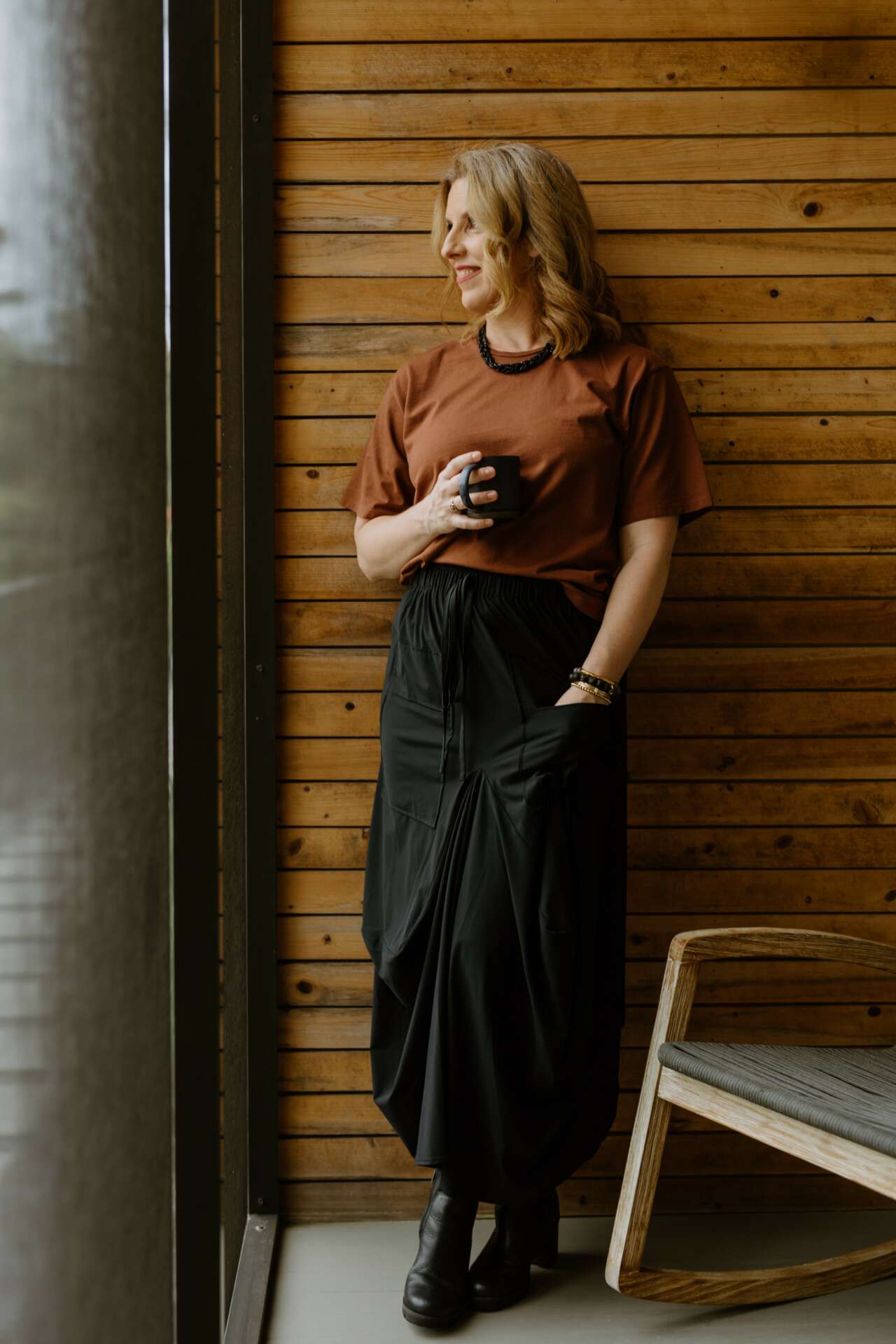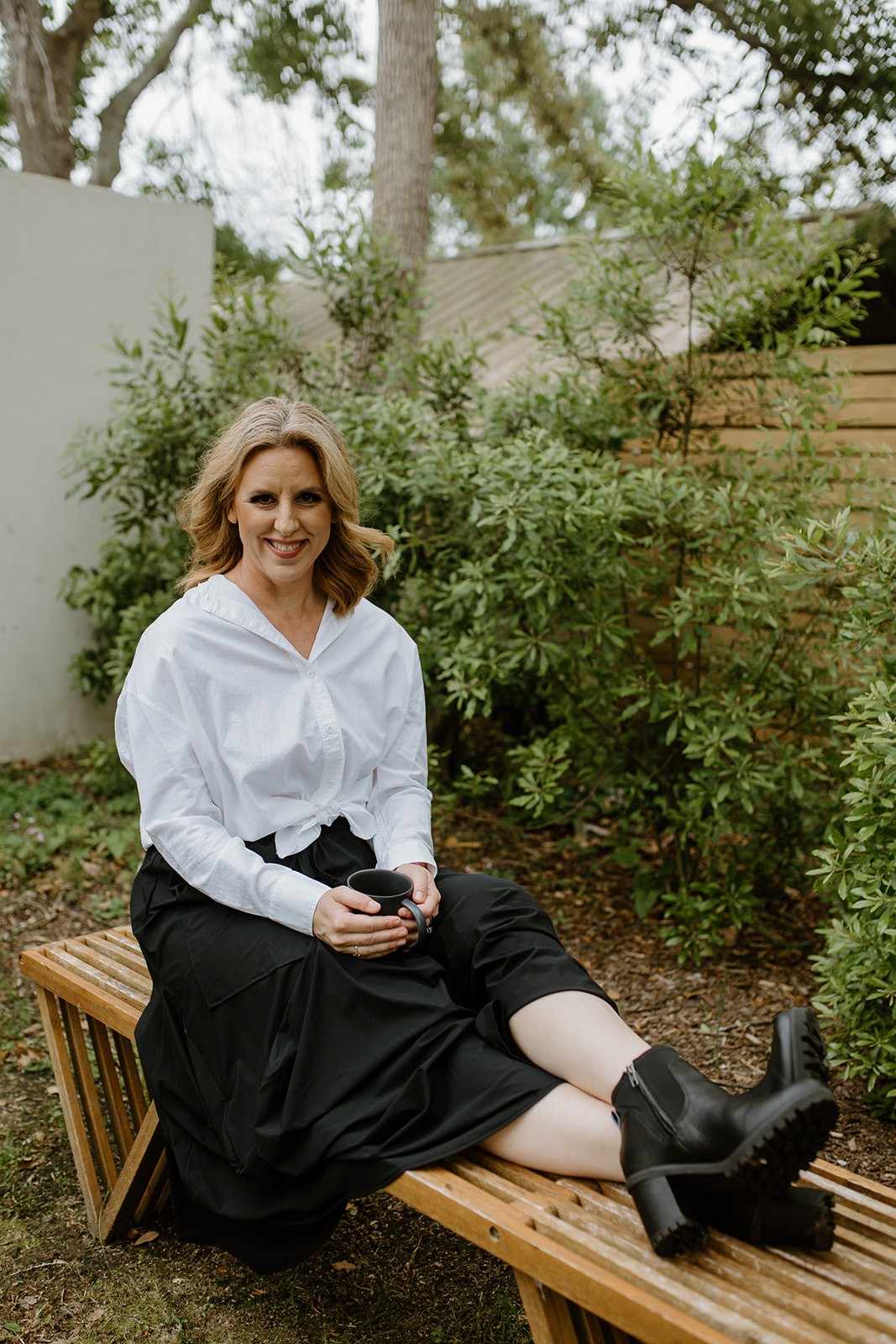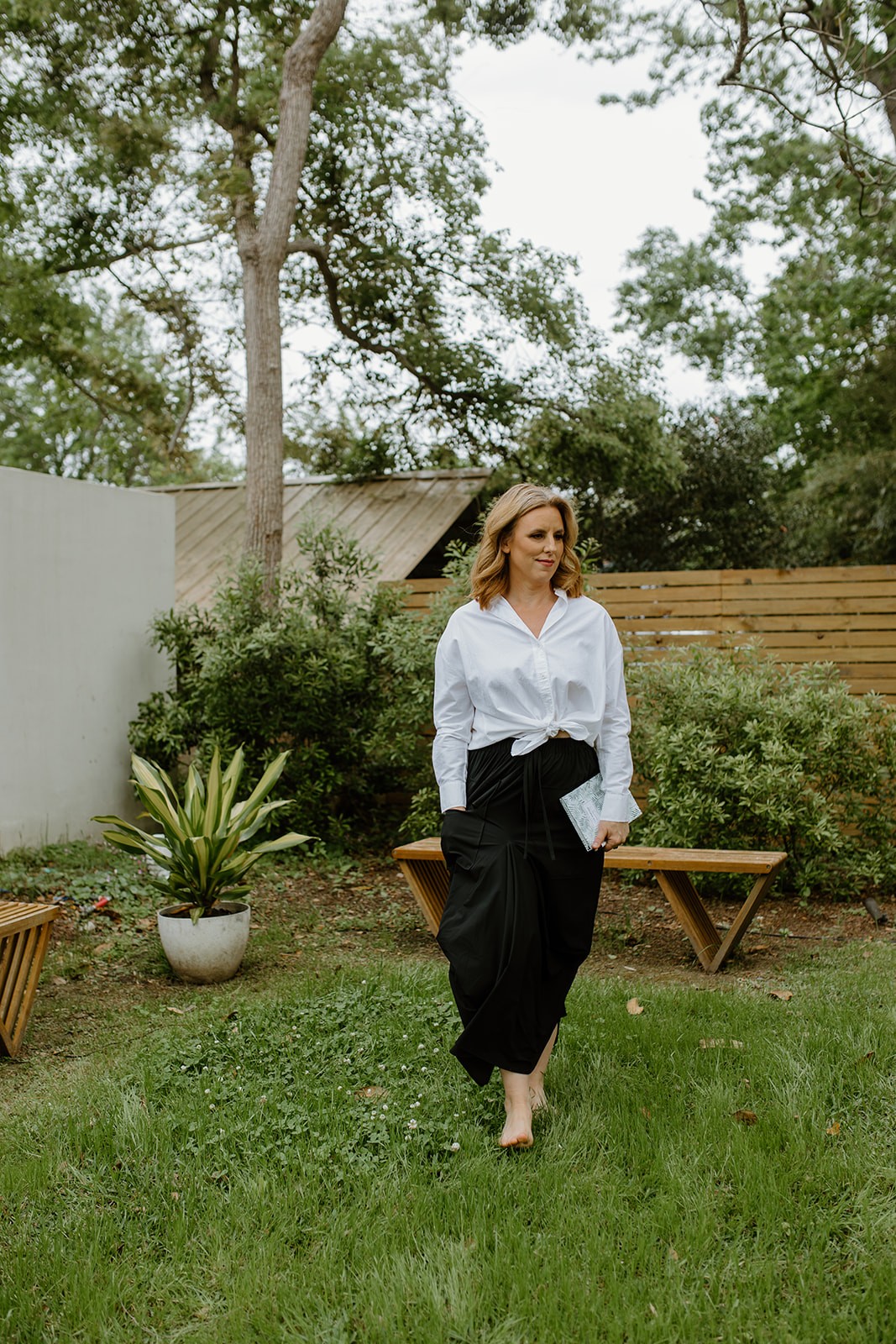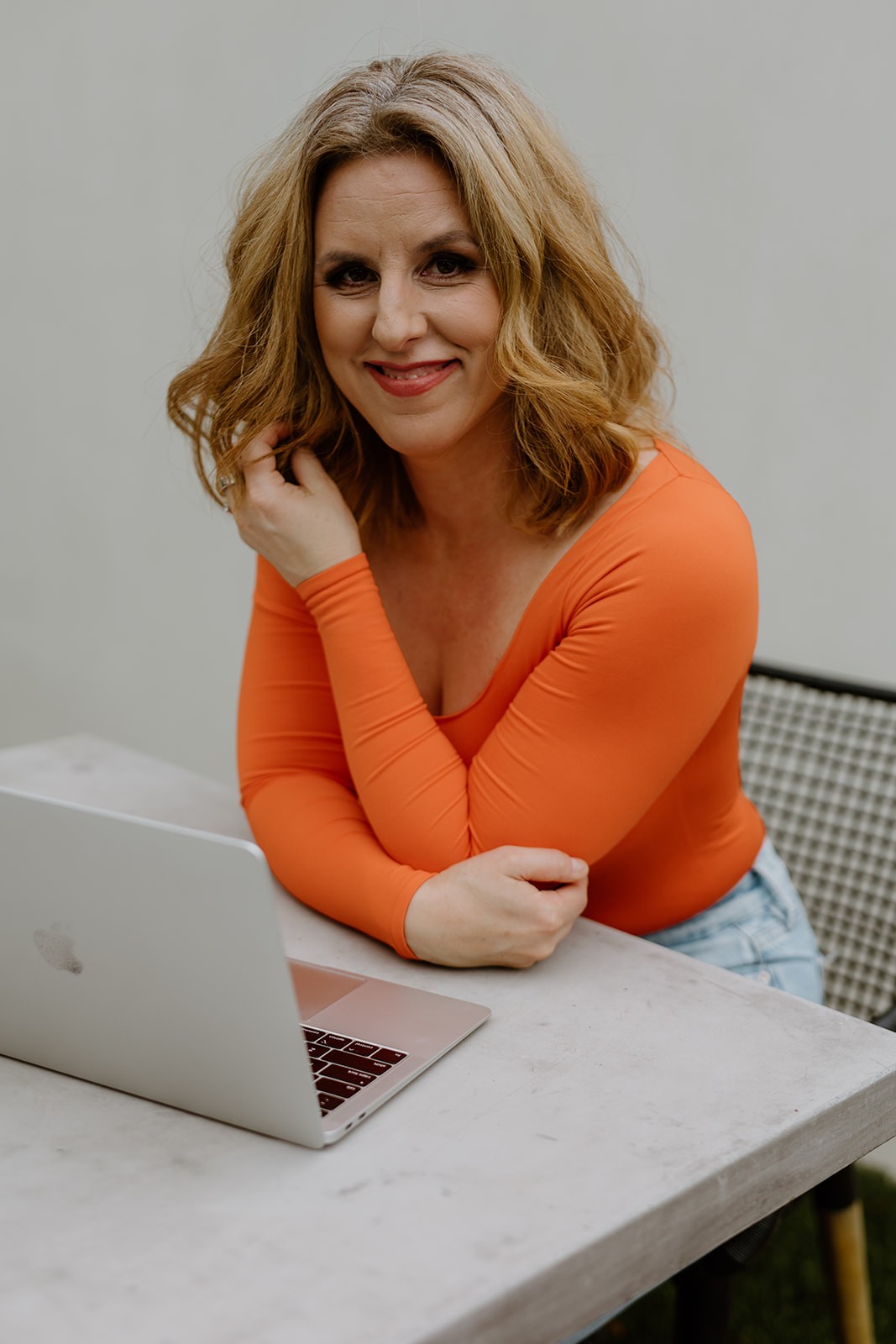We caught up with the brilliant and insightful Allyn Resch a few weeks ago and have shared our conversation below.
Alright, Allyn thanks for taking the time to share your stories and insights with us today. Was there a moment in your career that meaningfully altered your trajectory? If so, we’d love to hear the backstory.
I had been feeling for a few years that if patients had a resource available to help walk them through the process of returning their body to nervous system regulation it would make a big difference but it didn’t seem to exist. Then I got the push I needed to think about how to provide that service myself.
I was working in the ICU and admitted a patient with uncontrollable abdominal pain and low blood pressure. She had a long list of chronic problems and had undergone a handful of abdominal surguries in the past to look for the cause of her pain without any answers. She spent most of her days in bed and had a feeding tube. She was in her 50s and said these issues had started in her 20s. I asked her if any traumatic event had happened around that time and she froze. She had a sexual assault that she had never really dealt with. I explained that I thought the two things could be related and encouraged her to talk to a therapist but there was little more that I had to offer other than to treat her immediate needs. I don’t know if I helped that patient very much but what she did for me was create a sense of urgency for me that if something doesn’t change to reach this group of patients, then a future of debilitation and chronic disease could be their future which led me to start a coaching program.



Allyn, love having you share your insights with us. Before we ask you more questions, maybe you can take a moment to introduce yourself to our readers who might have missed our earlier conversations?
I am a medical doctor with board certifications in internal medicine, pulmonary medicine, and critical care while also navigating the adventures of motherhood with a teenage son. Recently, I made a shift, dialing down my hours in the hospital to kick off a virtual coaching practice. It’s all about catering to a group that I’ve noticed tends to get left behind in the realm of medicine. I’ve observed a substantial number of people, especially women, who find themselves bounced from specialist to specialist with vague symptoms like fatigue, muscle tension, headaches and this overall feeling that something’s off. Often times all their medical tests come back normal, and the specialists give them a clean bill of health. Other times they receive a diagnosis but even with treatment, know that they should feel better than they do.
I used to see these patients too, particularly in my role as a pulmonary specialist. They’d come to me as one of many referrals, and as I pored over their X-rays, CT scans, and pulmonary function tests, everything screamed “normal” but clearly the patient did not feel normal. Maybe I am more aware of this group because I have been this patient myself. Normal tests, not-so-normal symptoms, all thanks to the very real effects of chronic stress.
The challenge for addressing this in a clinic visit is that once stress takes a toll on your body and you hit that point of physical illness, there’s no quick fix. It’s a journey that demands time, insight, and a gradual process of making changes to restore your body to health. And I found that it was not something I could neatly package in a regular doctor’s office visit. Even with extended consultations, I found it hard to make a meaningful impact. That realization sparked the creation of my online coaching program. Here, I get to spend quality time with a small, focused group of clients, guiding them through the intricacies of the brain-body connection and crafting a plan for positive changes.
We’re diving into the world of neuroscience, sharing stories, embracing the cold plunge (yes, you read that right), and incorporating breathwork to bring the nervous system back into balance, tackling chronic stress and fatigue head-on. It’s not just a program; it’s a journey, and I’m thrilled to be the guide for those ready to embark on it.



If you could go back in time, do you think you would have chosen a different profession or specialty?
Sometimes I daydream about a completely different life where I am a journalist in a big city. It’s fun for me to think about what that would be like, but I also think that that version of me would be daydreaming about being a doctor. I think we all have times that we wonder about “what if I had…” but I love my life and I know that everything, including the wrong turns and redirects, have led me to where I am. I am very excited to be adding coaching to the list and can’t wait to see what “doctor allyn” becomes.
Training and knowledge matter of course, but beyond that what do you think matters most in terms of succeeding in your field?
The most helpful thing for me has been realizing how much we (as in the collective we) don’t know. As doctors, we want to fix things and I think sometimes doctors can become frustrated by not having an answer for patients. From the patient’s perspective, that frustration can look like lack of attention and compassion. It can be very validating just to feel heard, even if there isn’t a solution for the problem right now. I have learned that telling a patient, “I don’t know what is causing your symptoms, but I believe you are experiencing them” has a healing power in its own.
Contact Info:
- Website: docallyn.live
- Instagram: @doctor_allyn
- Other: email: [email protected]
Image Credits
April and Paul Photography


